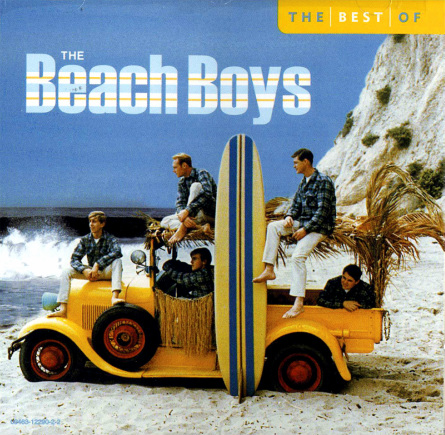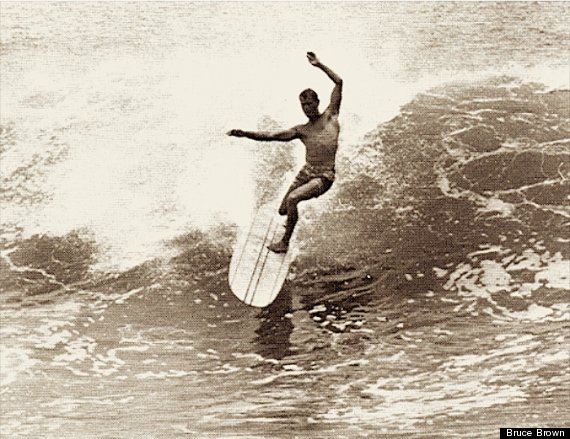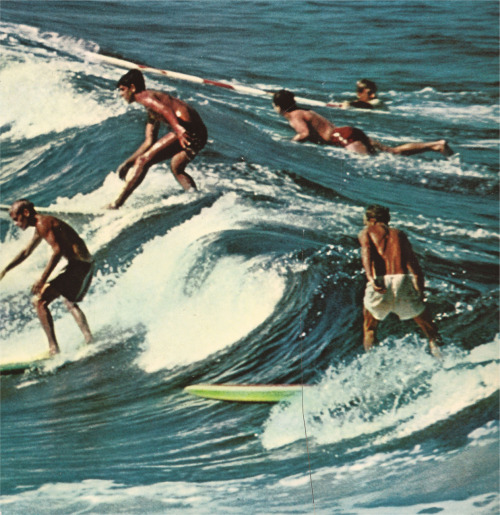Surf culture involves the people, language, music, and lifestyle surrounding the sport of surfing. It all began with the Polynesians who brought about the initial culture, and later influenced a whole new generation of surfers in the 1950's and 60's after World War II, shaping the activity for what it is today. As more people surfed and practiced the traditions it became more popular throughout the world. The sport became and is still immensely popular in Hawaii, Australia, and California, where waves are more effective to surf on because of the climate. Serf terminology was most commonly used in these areas because of the multitude of people who surfed there. Slang terms, such as “stoked”, “tubular”, “radical”, and “gnarly” were used to describe the feelings they experienced while riding an exceptional wave. Surf music was a big hit during the flourishing era of surf as well. Popular artists such as Jan and Dean, The Beach Boys, The Surfaris, and The Ventures emerged. The music inspired little dance numbers like The Stomp, The Frug, and The Watusi. Modern music that surfers listen to today is by various artists that range from Jack Johnson and Tom Curren to Foster the People and Matt Costa. Apart from the culture that comes along with the activity, however, many center their lives on the mentality and lifestyle derived primarily from surfing
People who incorporate surf into their daily life value and view the activity more than just a sport. Surfing is really a way of seeking serenity from the bustle of daily life. It is a lifestyle that involves only three things: man, ocean, and surfboard. It is a way of connecting to one’s inner soul, feeling liberated, and belonging to something in this world all at the same time. Surfing made people feel alive after a specific time that heightened the dead. World War 2 finished, but the people’s lives just began, and they continue to this day through the exhilarating activity of surf.
People who incorporate surf into their daily life value and view the activity more than just a sport. Surfing is really a way of seeking serenity from the bustle of daily life. It is a lifestyle that involves only three things: man, ocean, and surfboard. It is a way of connecting to one’s inner soul, feeling liberated, and belonging to something in this world all at the same time. Surfing made people feel alive after a specific time that heightened the dead. World War 2 finished, but the people’s lives just began, and they continue to this day through the exhilarating activity of surf.



